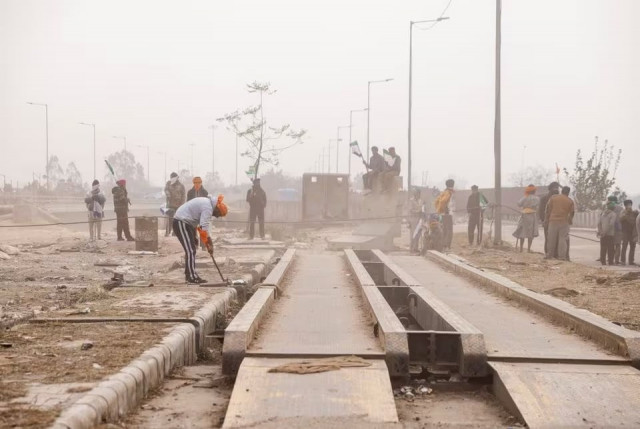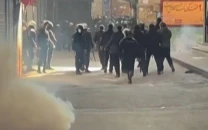India offers protesting farmers support prices on corn, cotton, pulses
The farmers' unions said they would decide on the proposal within a day or two

The Indian government has offered guaranteed support prices for pulses, corn and cotton in a bid to break a deadlock with protesting farmers, Trade Minister Piyush Goyal said after week-long clashes between security forces and protesters.
Tear gas and barricades were used to deter the farmers, who form an influential voting bloc, months ahead of a general election due by May, in which Prime Minister Narendra Modi seeks a record third term.
Sunday's comments followed marathon talks with farmers' unions after the protesters, who are demanding higher prices backed by law for nearly two dozen crops, were halted at a distance of about 200 km (125 miles) from New Delhi.
Goyal said the government had proposed five-year contracts for a minimum support prices (MSPs) to farmers who diversify their crops to grow cotton, pigeon peas, black matpe, red lentils and corn, paid by co-operative groups it promotes.
"These organisations will buy the produce and there will be no limit on quantity," Goyal told reporters in the northern city of Chandigarh, adding that a similar price guarantee would also be offered to farmers who diversify and produce cotton.
Read also: Kites battle drones as farmers take on police during India protests
The farmers' unions said they would decide on the proposal within a day or two, after reaching consensus among themselves.
But farm analysts said the government has completely sidestepped the demands of farmers.
"The government should have at least addressed one of the main demands of a legal guarantee for MSPs," said Devinder Sharma, an independent food and trade policy analyst.
The government's proposed solutions diverge significantly from what the farmers have been advocating for, indicating a lack of seriousness on the government's part regarding the whole issue, Sharma added.
Read: Indian police fire tear gas as protesting farmers march to capital
Switching more crops to pulses from rice and wheat that require more water will not only benefit a depleting water table but help cut back on imports of pulses.
The world's biggest importer of pulses, India has struggled to hold back increases in the prices of pigeon peas and black matpe.
Domestic corn demand has also been rising as the poultry and ethanol industries boost consumption.
Police have used tear gas and barricades to stop thousands of farmers, who mainly grow wheat and rice, from marching to New Delhi, to press their demand that the government ensures a minimum price for all their produce.
The government announces support prices for more than 20 crops each year to set a benchmark, but state agencies primarily buy rice and wheat at the support level, benefiting around just 7% of farmers who raise those crops.



















COMMENTS
Comments are moderated and generally will be posted if they are on-topic and not abusive.
For more information, please see our Comments FAQ